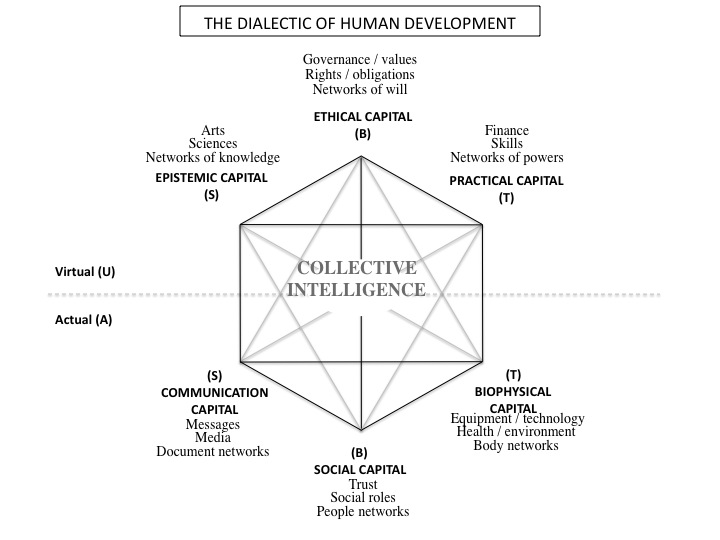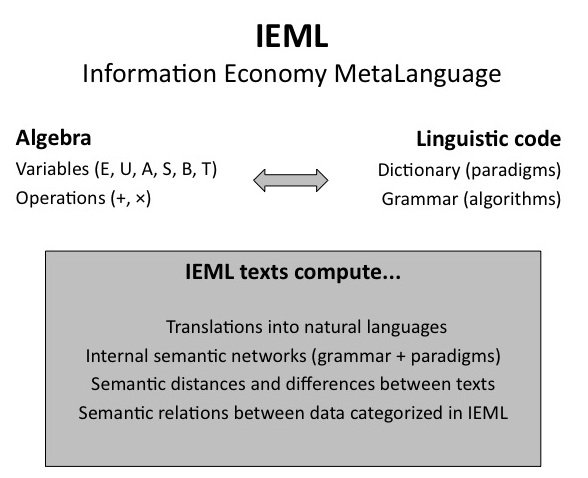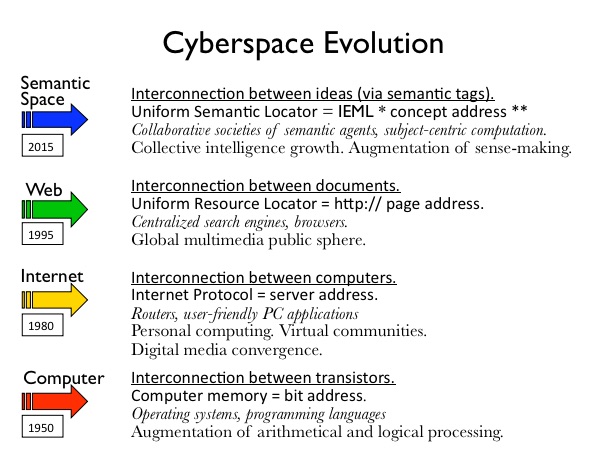Hi @litioncoin
Thanks for your response.
Are you sitting comfortably? Good, then let’s begin…
LOL, I fear that would be too long a story so I’d like to ask a couple of questions in order for me and anyone else to provide more useful answers. I am doing this because of your initial ‘elevator pitch’:
(I placed brackets around the middle sentence as it sounds to me more like a generalised assumption inserted in order to position a forthcoming proposition.)
My first question is what is the name litioncoin in reference to? I googled and not sure I understand the results so perhaps a little clarity on that would help - are you half-way through a project already or is this just coincidental and you are describing something entirely new?
I wonder also what you have discussed already as you mention @lucas.tauil so letting us know that would help not go over ground already done.
My experience is varied - both wide and deep which I didn’t know until last year was attributable a lot to being ADHD, Autistic, and more specifically PDA (I even speak a line about PDA being missed, misunderstood and misdiagnosed on the 1m intro video on the PDA Society website!).
My introduction to computers was hacking assembly language on a BBC B when I was 9 in 1981, watching my screen for 17h whilst it figured out which of 8 glorious colours to choose for the next pixel in my slowly rendering Mandelbrot, playing Chuckie Egg, then onto my first job in Tandy selling Commodore 64s, Sinclair QLs, electronic bits & bobs, then onto local computer store where I discovered that when people come in and say “my husband gave me £5k to spend on a computer” it’s great to leave them a pound or two left in their purse after their purchase 
I always wanted to be a developer though and in 1990 was one of 20 out of 600 applicants who got on a govt funded course learning RPG/400 for IBM AS/400s and that’s where I learned about relational databases, physical and logical files (physical being those that stored the actual data and logical ones being the different ‘views’ into that data, like queries), and spent a year discovering I hated working in enterprise software development.
So I went to Uni like my mates had done, learned ADA, Java, and how to do three first years, one second year, two universities, and still not knowing I had ADHD. Then I got a job in a London J2EE software house in 1999 and that’s when the relevance with your project comes in. First a little boasting though, the first web project I built was for Volkswagen UK taking them from brochureware to the world’s first car configurator. My boss gave me their account to look after because they were “too much to deal with” to which I thought WTF and turned it round in 3 months to be the biggest cheque they’d ever received. Also worked on B&Q’s first diy.com site, Foreign & Commonwealth Office, and the first Java payment interfaces for WorldP(r)ay and Datac(r)ash whilst working on the world’s first horse-race gambling site that settled payments via the live data feeds. The part that’s relevant to your project though is the intranet I built using the software we built (RemoteApps, scalable modular web app platform) - I made the design so it looked like Big Brother with interviews of new staff members as it had just started on telly as I was the 6th person to join the company and we grew to 60 in two years before the dotcom bubble and all the investors pulled out of tech so my share options ‘worth’ went from $1m to zero. Anyway, point is the only way I got people to use the intranet is because I made it so they had to enter their expenses through it in order to get reimbursed. Wow, such long paragraph for such small point. But it’s a good point, whatever people say and however good the intent is, others aren’t necessarily caring a hoot about anything else apart from their own stuff.
So after redundancy I returned here to Essex and ran loads of local networking events as part of the Ecademy network which had bought the govt-funded ‘BeyondBricks’ network I was a member of when I discovered my previous employers and had its funding finished. Ecademy was built on Drupal, the Open Source CMS - I was building sites for local businesses using various CMSs I’d found on OpenSourceCMS directory - the usual PHPNuke which I found too restrictive, then XOOPs which I liked because of the OO approach, but hadn’t used Drupal as didn’t really understand what it did. Anyway through holding these local meetings mostly in the back room of pubs and meeting all these people many whom worked remotely already, along with discovering all this Free Software I ended up becoming known as “The Open Source guy”, this was before I really knew the difference between Free and Open and I had this “vision” of creating an Open Source Coworking Cafe, a kind of Co-operative Club which would provide a much-needed “3rd space” at a time when coworking spaces were only just starting, and somewhere that was less like an office but more like what I realise now is a drop-in centre  plus a space which would raise the profile of free software which doesn’t have a sales and marketing team. This space IRL I also see as ‘collective intelligence’ because it’s all about meeting people and I find the more people I meet, the luckier I get. Success in life is often down to who you know, and providing the technology tools and spaces around that in order to help that flow is what I’m all about, because I’ve seen the power of how it works when you connect, especially on an energetic level. And after all, people deal with people they know, like and trust. That’s also why I like Holochain as opposed to Blockchain which is based on mistrust.
plus a space which would raise the profile of free software which doesn’t have a sales and marketing team. This space IRL I also see as ‘collective intelligence’ because it’s all about meeting people and I find the more people I meet, the luckier I get. Success in life is often down to who you know, and providing the technology tools and spaces around that in order to help that flow is what I’m all about, because I’ve seen the power of how it works when you connect, especially on an energetic level. And after all, people deal with people they know, like and trust. That’s also why I like Holochain as opposed to Blockchain which is based on mistrust.
The point of that previous paragraph is because I had a mentor at the time (2005), the guy who “invented” free internet access which was when you used to dial up an 0845 number on your phone, it was a revenue sharing concept he sold to Worldcom. Anyway I was way too excited about my new concept and he said “Steve you need to de-stress”. He was doing a talk in Toronto that weekend and I thought “well, where else better to de-stress than above the clouds” and would you know it, two days later I was in Toronto LOL. I loved the difference in attitude towards entrepreneurship out there and also discovered that people don’t just throw you loads of money because you have a wonderful idea. But that is where whilst looking in a second hand bookshop in downtown Toronto I discovered a book called “Becoming Virtual” by Pierre Lévy. This book blew my mind, how Pierre described the virtual as not the opposite of the real but the potential, and I became a big fan of Pierre and his work in furthering the field of Collective Intelligence with his Information Economy Meta Language project. By simplifying notation of meaning and making it computable, Pierre had/has created what I believe to be the next layer of the internet. What had always troubled me is how you get people to encode it though, and after many years I came down to the answer that it is in small, domain-specific pieces. So a focused IoT device is a good example - “it is raining here”, “it is X degrees hot/cold here”. Pierre was criticised initially for restricting the language to defined dictionaries however you have to start somewhere, and the power of being able to encode knowledge in any language, it then be computable, and outputtable in any other spoken language, blows my mind, and is why I’m interested in any conversations around collective intelligence.
It is also when I am wary around ones which sound like they have a solution they are trying to find funding and a market for which are based on assumptions of being able to get people to do stuff. It’s also why I spend time with these long ranty replies because often you have teams with good intentions but perhaps the wrong set of tools and if those intentions are as they say, then they’ll be open to other ways of achieving their goals as I believe a lot of people at the moment find it hard to say on the one hand they want to give people their freedom but that freedom relies on some kernel of control, because that then concentrates that kernel of control to be totalitarian due to the nature of technology. For me, the mix of IEML and Holochain provides the ideal opportunity to seed this platform of collective intelligence in the real world by providing a base layer of encoding upon which other apps can be built, and in a way much like Holochain is not being funded by development of itself but of something that provides value in a commercial world because of it (i.e. the bridge between the current www), funding of this would be through the commercial opportunities it enables by its existence. I have a few ideas through recent experiences I’ve had to endure like buying shoes but there are plenty more that could be enabled by a world of true Collective Intelligence where users are in total control of their data and commercial algorithmic ‘layers’ can be applied to this data without the commercial organisations knowing what the data itself is. Being able to present this in an understandable way to the people that could help is my issue, hence my reply as although you and your team may have different ideas, just typing this out helps me see quite how far away I am currently lol!
I’ve briefly set up a couple of groups on my gitlab project page for holo.press, the idea of a holo.press is creating a ‘press’ for the holographic universe, so we had the printing press for the 2d print industry, then we had of course wordpress, which is 2d print industry for the web, but the web is not a book and it doesn’t have pages, it has requests and responses. So we need a notation for what we want the internet to do and similarly one for responses. What holo.press does is provide a generic “os” layer for printing into the holographic universe so you could use the “it is raining here”, or something more complex like “I am able to play the guitar” and link various media and links as you post from that seed. A bit hard to explain in text 
So as you say, finding the right person and information can become expensive and time consuming. I feel the solution you outline in your post is, if does come to fruition, one way of taking current circumstances and streamlining them into one way of operating and yes you could get funding for it and it may make money and provide you with something to do for a few years, however in terms of advancement of Collective Intelligence I am not so sure, it sounds more like Artificial Intelligence especially when you talk about interfacing with existing information about people which is mostly gathered by commercial organisations with an agenda. I believe a world of AI is not one we want to be living in as it is not based on real user data but assumptions of data requirements from organisations. What IEML and Holochain provide is the opportunity to do CI properly. It won’t be simple, easy or quick, but it may just save the world from a ghastly future where our every thought is tracked and traced [edit: and not in our control, I love data about me, I’m just not so sure I want to share all of it lol].
Anyway, so by being able to encode things like “I am able to play the guitar” along with “I would like to be able to play the guitar” and the computational language in between systems of Collective Intelligence can be built (one of my many previous domain name holdings was ‘abilit.es’ but again the concept is too general, it needs focus for people to know that it’s a system for them). IEML provides the notation of: Virtual, Actual, Sign, Being. Thing, and examples of how this could be implemented in commercial environments are things like recruitment, so like the last almost 20 years I’ve spent in the Drupal community, finding someone with experience of Views, or spatial data, etc. is especially hard for people outside the community, what makes it harder there is the availability side of contractors and getting them to update their calendars, but I like the way Lunchclub have achieved this with weekly emails saying click here to opt in for that week. Also module discovery is hard in Drupal - often you’ll find people working on the same thing because it isn’t there and they don’t know the other person is working on it. So there’s lots of scope, but I also know in the commercial world it can be easy/tempting to just go the “easy” option, sadly I don’t ever have seemed to have done that but by putting my ideas out there hopefully one day I’ll either achieve them by myself or discover fellow frequencies to collaborate with!
I have posted a couple of times about this - first time I did someone ended up joining the IEML project! So I posted a thread for those interested in exploring IEML a couple of weeks ago, nobody replied yet though.
OK, that’s enough rants from me, well done and congratulations if you got this far! Here’s some pretty diagrams for you:







